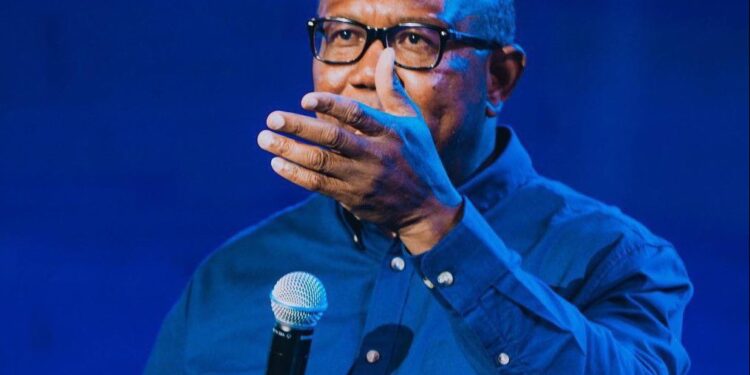Labour Party presidential candidate Peter Obi has strongly criticized the Federal Government’s proposal to purchase new aircraft for the presidential fleet, denouncing it as insensitive amid Nigeria’s severe economic challenges exacerbated by government policies. Obi pointedly questioned the decision, suggesting that the funds allocated for new jets could be better utilized to address pressing issues such as poverty, insecurity, and the economic downturn gripping the nation.
In response to Obi’s criticism, the Presidency swiftly defended its stance, with Special Adviser Bayo Onanuga asserting the necessity of ensuring the safety and operational efficiency of the presidential fleet. Onanuga cited the age and reliability concerns of the current aircraft, which reportedly date back more than two decades to the era of former President Olusegun Obasanjo. He argued that the recent incidents, such as the aircraft malfunction during a trip to Saudi Arabia necessitating the President’s subsequent commercial flight to the UK, underscored the urgent need for upgraded and reliable presidential transport.
The House of Representatives Committee on National Security and Intelligence had earlier recommended the acquisition of new aircraft after assessing the state of the existing fleet. This recommendation came in the wake of plans to sell off three older planes from the Presidential Air Fleet. However, Obi remained steadfast in his opposition, describing the proposal to purchase new jets as a misplaced priority and a reflection of the government’s disconnect from the everyday struggles of Nigerians.
Obi emphasized that the average age of the current presidential jets stands at 12 years, purchased during a time when the economic landscape was less dire. He contrasted this with international standards, noting that in the United States, for instance, Vice Presidential residences receive periodic renovations funded by taxpayers, not lavish upgrades. He called for a reevaluation of government spending priorities, advocating for investments in critical sectors such as education, healthcare, and poverty alleviation instead of extravagant expenditures on presidential luxuries.
In concluding his remarks, Obi underscored the need for a government that prioritizes the welfare of its citizens over personal comforts, urging a national focus on rebuilding a society that genuinely serves the needs of all Nigerians, not just a privileged few.
























